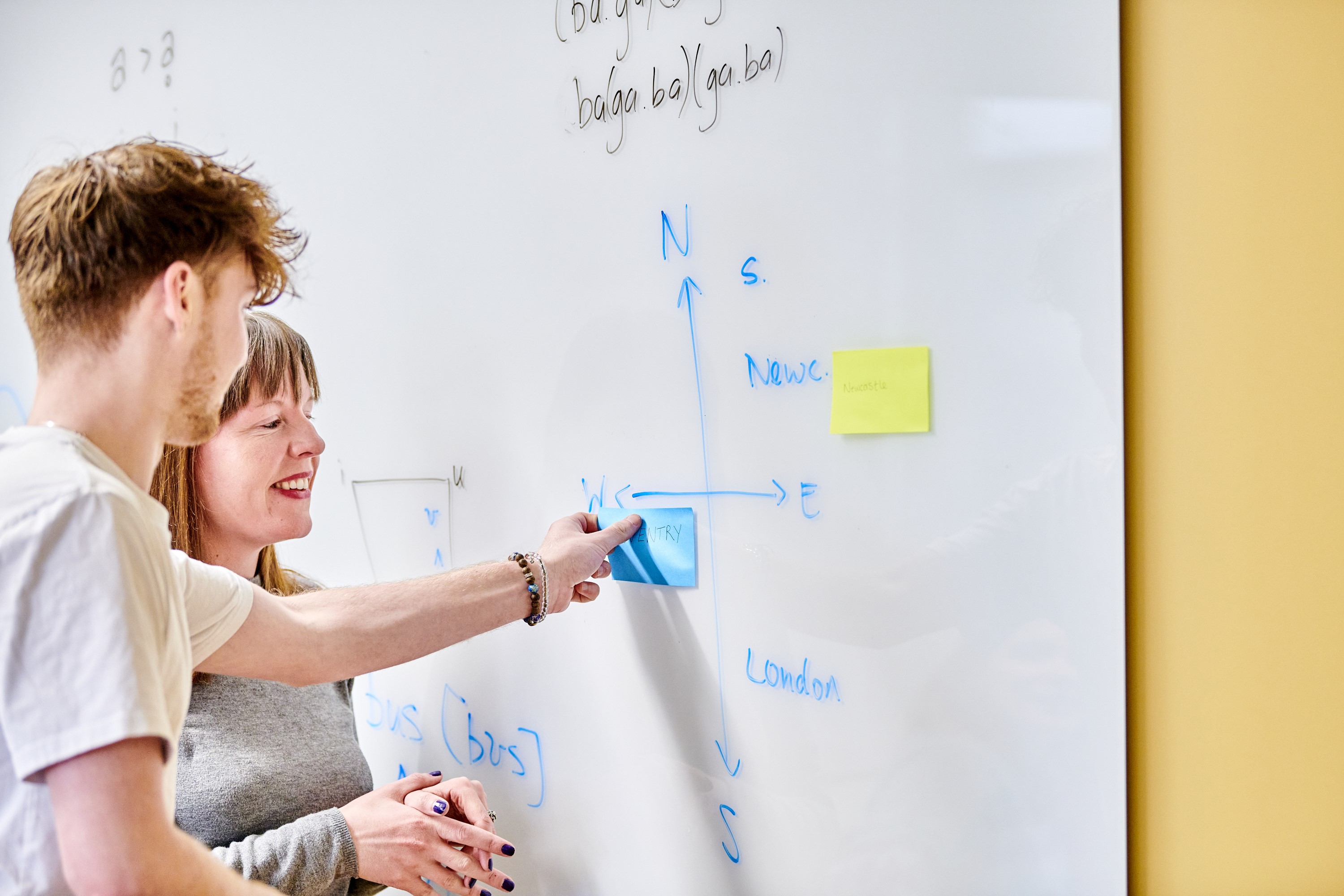Q1+: Linguistics with a Modern Language
Welcome to your degree in Linguistics with us!
Wondering how to prepare? Keep your eyes and ears open – language is all around us! There is no specific work that you need to do in advance of studying here, but developing a keen sense of observation of language is something you will continue to do during your time here. Nevertheless, if you’d like to start getting into the swing of things before the semester begins, the following websites provide useful introductions to various aspects of Linguistics:
- All Things Linguistic (a blog by Gretchen McCulloch), which includes “A very long list of linguistics YouTube channels and other free online videos about linguistics”
- Citizen Sociolinguistics: varieties of language experience (a blog by Betsy Rymes)
- Crash Course Linguistics (a ‘Crash Course’ series on YouTube; by Gretchen McCulloch, Lauren Gawne and Jessi Grieser; presented by Taylor Behnke)
- Lingthusiasm (a podcast by Gretchen McCulloch and Lauren Gawne)

Sorry, you need JavaScript to view this video
School Support for Wellbeing and Mental Health
We know that some of our students will experience extra challenges when undertaking their degree.
If you have a medical condition or are diagnosed with one during your degree, have caring responsibilities for adults or children, or experience financial or personal challenges, a degree can be harder to undertake.
Who do I talk to to access the academic and pastoral support I need?
In addition to the University’s Service, we have our own dedicated support worker for our students.
This is a message from our colleague, Kirsty Robson. Kirsty is a trained social worker who now works to support and advise our students:
‘My name is Kirsty, and I am the dedicated Student Wellbeing Advisor for SELLL students. My role as the Student Wellbeing Advisor is to act as a point of contact within the School to support students in accessing appropriate support and resources to improve and maintain their personal wellbeing. This can be in relation to a wide range of circumstances and difficulties.
I offer confidential, one-to-one appointments, a listening ear, advice and support. I can make referrals to more specialised teams within the University, such as Counselling, Finance, and Disability Support.
The student wellbeing advisor is part of the wider Student Health and Wellbeing Services team who offer a wide range of specialised support to students regarding their personal wellbeing. Students can refer themselves directly to that team or can be supported to do this via the student wellbeing advisor.’
Kirsty is an invaluable support for all our students. You will also be assigned a Personal Tutor at the beginning of the academic year whom you will meet in induction week. Your Personal Tutor is the first port-of-call for any academic or pastoral issues. You will meet your personal tutor in Induction Week. We also have a First Year Senior Tutor whose role it is to support you in your transition from secondary school to university. Your Peer Mentor, who will be a second or third-year student, can also offer advice from a student perspective.
Student Support Plans
Student Support Plans (SSPs) outline any adjustments you may need for your studies and assessments.
You may need supports and/or adjustments because of particular physical or mental health issues with which you have been diagnosed. These plans are developed with you and, with your consent, shared with the academics teaching you so they are aware of your needs.
If you have a pre-existing condition and if you have included that information on your UCAS form, Wellbeing Services will receive that information and be in touch with you once you join us. If it was not included, you can email disabilityadvisor@ncl.ac.uk to request an appointment at any time in the run-up to the September you are hoping to commence study with us. If you have had an issue recently diagnosed you can contact Kirsty Robson, our dedicated Student Wellbeing Advisor, your Personal Tutor or the First year Senior Tutor. You may also email disabilityadvisor@ncl.ac.uk directly yourself to make an appointment to set up a support plan or revise an existing one.
Caring and the Cost-of-living
We have a scheme called 'Carers' Passports' to support students with caring responsibilities. This allows students who are carers the flexibility they need to do their degree and support those for whom they care.
We are very much aware of the cost-of-living crisis and the impact it has on students. Please do not hesitate to get in touch if you are experiencing financial struggles at any point during your degree. You can also get in touch if you simply want some advice on budgeting or managing money.
Please note
Our teaching is informed by research. Course content may change periodically to reflect developments in the discipline, the requirements of external bodies and partners, and student feedback. Please rest assured we make all reasonable efforts to provide you with the programmes, services and facilities described. However, it may be necessary to make changes due to significant disruption, for example in response to Covid-19.
Full details of the modules on offer will be published through the Programme Regulations and Specifications ahead of each academic year. This usually happens in May.
To find out more please see our terms and conditions.
